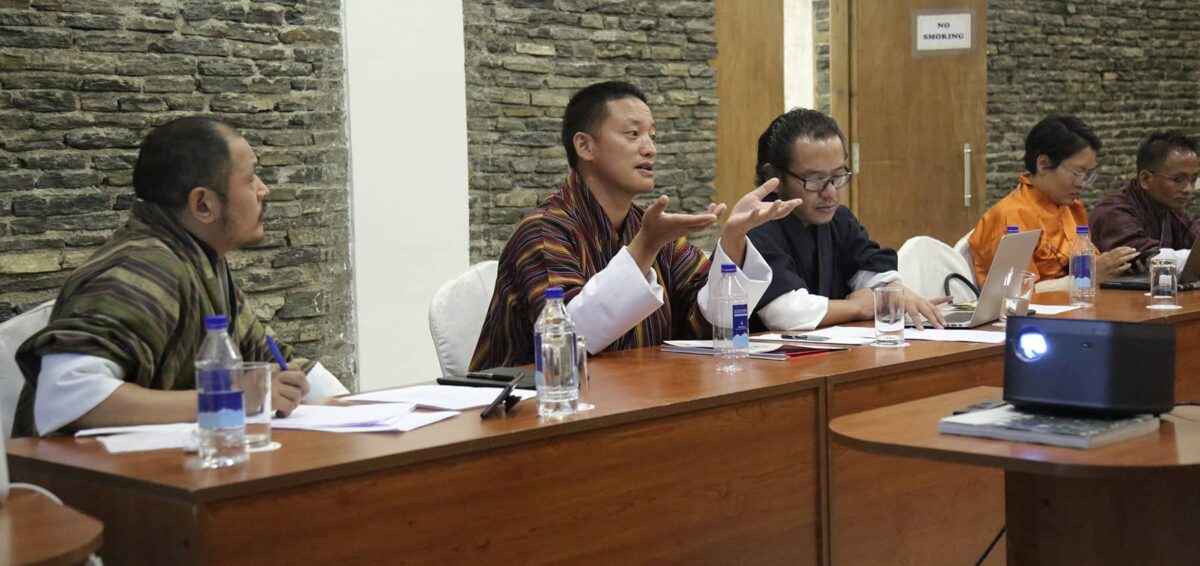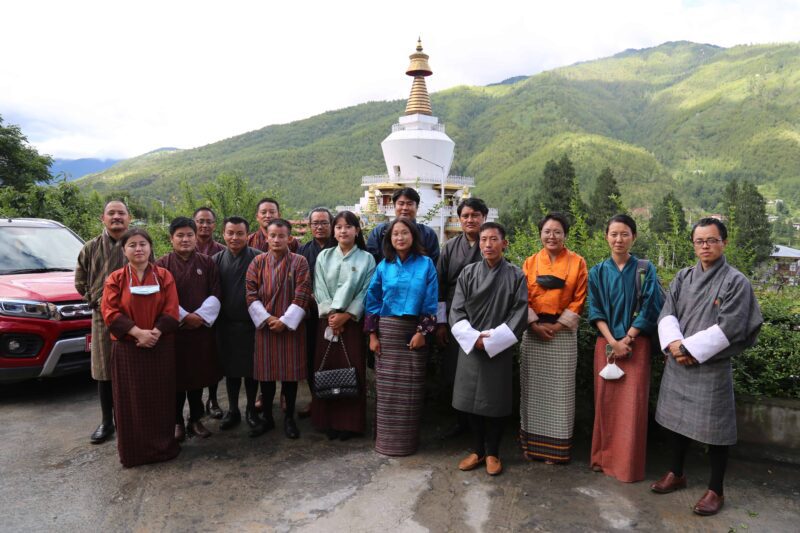The Bhutan Media Foundation, an EJN media grantee, convened the environmental reporters they supported with grants for a two-day workshop in August.
In March 2021, journalist Choki Wangmo published a story on the declining tradition of pangtse oil production in Bhutan. Extracted from a native species, Symploscus paniculata, the oil is organic and nutritious; the tree itself helps curb desertification and erosion. The story revealed a mismatch between communities’ expectations and government support.
Wangmo is one of eight reporters from local newspapers and television who received a reporting grant and training from the Bhutan Media Foundation (BMF) to produce well-researched, in-depth stories on the impact of climate change on vulnerable communities. BMF, an Earth Journalism Network (EJN) media grantee, aims to foster the growth of a strong, independent media sector in Bhutan.
On August 2, 2021, BMF convened the reporters along with NGOs and other officials at a two-day workshop, ‘Linking Climate Change with Public Policies.’ The journalists presented their climate change-related stories and shared their reporting experiences during the workshop. Officials from Bhutan Ecological Society, Royal Society for Protection of Nature, Bhutan Trust Fund for Environmental Conservation and Clean Bhutan were also present.

The stories produced were diverse, ranging from the threat of glacial lake outburst floods (GLOFs) to water scarcity, to a decline in mandarin cultivation, overharvesting of Cordyceps sinensis (caterpillar fungus, considered a valuable health supplement) and the slow decline of yak herding, in addition to the report on pangtse oil production.
The participants then discussed the stories and offered comments and feedback to each other. The reporters shared their challenges in covering the stories and, together with other participants, exchanged ideas for more climate change-related stories in the future.
Dr. Norbu Wangdi from the Royal Society for Protection of Nature said there is huge scope for agroforestry of pangtse shing, which will benefit the community as well as the ecosystem.
Nidup Tshering from Clean Bhutan said climate change-induced impacts such as shifts in vegetation also deserve coverage in the newspapers as it has far-reaching impacts on the environment.
Discussing Karma Wangdi’s story on containing glacial lakes in the Bhutan Times, the participants voiced a need for more stories on what the government is doing to reduce the vulnerability of settlements on the banks of the river in case of flooding. The story revealed that while the threat of GLOFs remains imminent, there are no plans for relocating settlements that fall in the flood zone.
Senior environment journalist Tashi Dorji, who mentored the reporters on climate change reporting, said that while Bhutan is considered a biodiversity hotspot and is rich in natural resources, lack of funding and specialization among journalists, as well as the technical complexity of the subject, pose limitations for reporters looking to write effective stories that could influence the public. Lack of data and empirical evidence, along with a paucity of local experts, are some of the other major challenges faced by local journalists while covering climate change and the environment in Bhutan.
Despite these challenges, some of the stories have been impactful in generating public discourse and bringing about policy change. For instance, freelance reporter Sonam Lhendup’s article on the danger of flashfloods in Lhuentse prompted the district disaster management committee to conduct an in-depth study and assessment on the potential risk of GLOFs and build flood protection walls in low-lying areas.
“This exemplifies the modest success of this grant project in a country where the understanding of the science of climate change is rudimentary,” said Needrup Zangpo, BMF’s executive director.
For more information on the Bhutan Media Foundation, visit their website, or follow them on Twitter, Facebook or Instagram.
